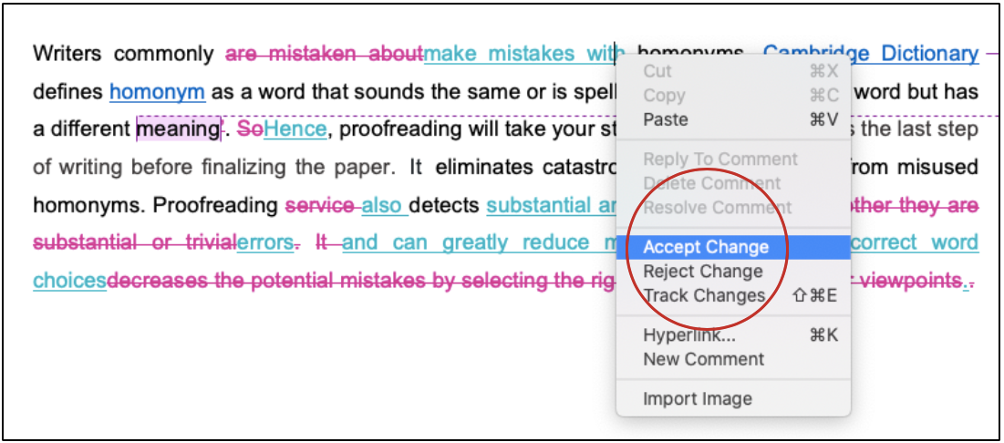An abstract usually summarizes a lengthier work (including a dissertation, thesis, research paper, or review). The abstract should explicitly state the objectives and results of your research. Thus, readers can learn what your research addresses.

An abstract usually summarizes a lengthier work (including a dissertation, thesis, research paper, or review). The abstract should explicitly state the objectives and results of your research. Thus, readers can learn what your research addresses.
Even though varied abstract structures exist depending on your discipline, your abstract should specify your study’s objective, the methodologies used, and the conclusions drawn.
Abstracts can have a number of words anywhere between 150 and 300; a specific limit is available if you check your publication guide. You have to ensure that the relevant requirements are met. The abstract is on a separate page in a dissertation or thesis. It is usually after the title page and acknowledgments but before the table of contents.
It would be best if you penned an abstract when writing a dissertation or thesis, sending a manuscript to an academic journal, applying to an institution for research funding, and composing a research proposal or book. It would help if you wrote the abstract after you have finished your study. It should be an independent text from the paper and utterly understandable by itself. More importantly, it should contain the structure of your dissertation or thesis.
You must begin by specifying the objective of your dissertation. Two relevant questions are as follows.
1) What down-to-earth problems does your study address?
2) What was your overall objective in conducting this research?
You should briefly present your topic’s social or academic relevance without elaborating on the background information excessively. Try to avoid specialized terms. However, if you feel you have to do so, specify the meaning of these words explicitly. After recognizing the problem, define the objective of your research. You may use verbs like “explore,” “test,” “analyze,” “assess,” or “evaluate” to designate exactly what you wish to do in this study. You can use present or past simple tense in this part of the abstract. Nonetheless, do not refer to the future tense, as you have already completed the work.
You should designate the research methods you employed to address your research question. Plainly define what you conducted in one or two sentences. This part is usually written in the simple past tense because it is about completed actions. It would be best if you did not elaborate on the validity or challenges here. The objective is not to present the methodology's strengths and weaknesses. In contrast, it gives the reader a quick insight into your study's approach and the procedures you utilized.
This step involves summarizing the main research results. Based on your study's extensive and complicated, you may only contain some results here. Try to highlight only the most critical findings that will allow the reader to understand your conclusions. You can use present or simple past tense.
Ultimately, it would help if you deliberated the primary conclusions of your dissertation. State your answer to the problem or question. The reader should understand what the central point of your research is. The usual tense is the present simple tense. If important limitations to your study concerning your sample size or methods exist, you must cite them briefly in the abstract. Then, the reader evaluates your research's credibility. If your objective were to elucidate a practical problem, you might discuss recommendations for implementation. Moreover, you can include suggestions for further investigation.
If you will get your paper published, adding a list of keywords at the end of the abstract is a must. These keywords cannot and should not be chosen arbitrarily. They should reflect the most relevant elements of the research. More importantly, some publication manuals such as APA,MLA, or Harvard may have specific formatting issues for these keywords. Then, potential readers can readily find your paper while searching the literature.
Downsizing your whole study into a few hundred words is challenging. However, the abstract is the first part people read about your dissertation or thesis. Therefore, it must be concise and accurate. The following points may help you.
Read other people's work to learn how to write an abstract in your discipline. While doing your literature review, you may have already read many journal article abstracts. If so, use them as a framework for your abstract. You may also resort to various thesis and dissertation databases.
Penning impactful abstracts is challenging due to word limitations. Therefore, ensure that every word counts. Each sentence must communicate one primary issue. You can keep your abstract short and to the point by sticking to the following points.
1) You can avoid passive voice.
2) You can choose not to write too-long sentences.
3) You can evade obscure language.
4) You can elude repetition and filler words.
5) You can shun too many details.
Should you struggle to edit down to the required length, you can get help from professional editing and proofreading services.
Best Edit & Proof expert editors and proofreaders focus on offering papers with proper tone, content, and style of academic writing, and also provide an upscale editing and proofreading service for you. If you consider our pieces of advice, you will witness a notable increase in the chance for your research manuscript to be accepted by the publishers. We work together as an academic writing style guide by bestowing subject-area editing and proofreading around several categorized writing styles. With the group of our expert editors, you will always find us all set to help you identify the tone and style that your manuscript needs to get a nod from the publishers.

You can also avail of our assistance if you are looking for editors who can format your manuscript, or just check on the particular styles for the formatting task as per the guidelines provided to you, e.g., APA, MLA, or Chicago/Turabian styles. Best Edit & Proof editors and proofreaders provide all sorts of academic writing help, including editing and proofreading services, using our user-friendly website, and a streamlined ordering process.
Visit our order page if you want our subject-area editors or language experts to work on your manuscript to improve its tone and style and give it a perfect academic tone and style through proper editing and proofreading. The process of submitting a paper is very easy and quick. Click here to find out how it works.
Our pricing is based on the type of service you avail of here, be it editing or proofreading. We charge on the basis of the word count of your manuscript that you submit for editing and proofreading and the turnaround time it takes to get it done. If you want to get an instant price quote for your project, copy and paste your document or enter your word count into our pricing calculator.
Contact us to get support with academic editing and proofreading. We have a 24/7 active live chat mode to offer you direct support along with qualified editors to refine and furbish your manuscript.
Follow us on Twitter, LinkedIn, Facebook, Instagram, and Medium.
For more posts, click here.
This article explains how to write an abstract for a dissertation or thesis. To give you an opportunity to practice proofreading, we have left a few spelling, punctuation, or grammatical errors in the text. See if you can spot them! If you spot the errors correctly, you will be entitled to a 10% discount.
How to Determine Variability in a Dataset
14.10.2023
Population vs Sample | Sampling Methods for a Dissertation
14.01.2023
7 Issues to Avoid That may Dent the Quality of Thesis Writing
18.12.2022
How to Ensure the Quality of Academic Writing in a Thesis and Dissertation?
04.12.2022
How to Define Population and Sample in a Dissertation?
03.12.2022
How can You Establish Experimental Design in Your Dissertation?
12.11.2022
How Can You Decide on Tense Usage in Your Dissertation?
04.11.2022
How to Build Research Methods for Your Dissertation
14.10.2022
How to Build a Strong Hypothesis for Your Dissertation
13.10.2022
How Can You Develop Solid Research Questions for Your Dissertation?
13.10.2022

You have been working hard on your research paper and want to write an excellent dissertation/thesis. You have researched all the materials, and your data are perfect— all you need to do is put them together in a dissertation or thesis. But how do you manage that? While working on the research is not easy, it’s structuring a dissertation or thesis that the main issue lies with. Therefore, if you are struggling with structuring your dissertation or thesis, this article may be of help.
Continue Reading
A dissertation defense is one of the critical milestones one needs to cross to obtain a doctoral degree. It is a process that helps a candidate proffer their research knowledge to an audience of accomplished academics. Thus, preparing to defend a dissertation can feel distressing and burdensome, for one needs to tick several checkboxes at once. But, with the right set of steps and adequate practice, candidates can successfully overcome this unease.
Continue Reading
We may have qualitative, quantitative, and mixed methods in dissertations. This blog will elaborate on quantitative dissertations, qualitative dissertations, and mixed methods dissertations by addressing their similarities and differences.
Continue Reading
The first chapter of your thesis or dissertation includes the introduction. You should provide the reader with a solid start. Next is staging your research with an apparent focus, objective, and direction.
Continue Reading
You discuss and explore your results' prominence, meaning, and relevance in the discussion chapter. Therefore, you should concentrate on what you have found and explain and assess how your findings relate to your literature review and research questions.
Continue Reading
After successfully specifying your project’s research problem, penning a problem statement pursues. Two crucial properties of an efficient problem statement are its conciseness and tangibility.
Continue Reading
Briefly, research objectives are all about what you intend to achieve in your project. Therefore, they are expected to list every stage of the research and cover which methods they have used to gather data, establish their focal point, and advance their conclusions.
Continue Reading